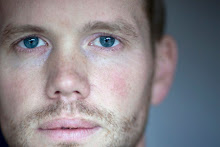The interesting thing is that these emotions are completely in the mind of the spectator (in this case, in my mind). The performers are actually forbidden to try to represent or act out any emotion. Rather, they give themselves completely to the task of following a very precise set of actions, rigorously woven together. When they accomplish this scheme with full concentration, then the audience members can engage with them in a playful and active usage of their imagination, bringing along their own set of associations. Roos describes her objective as “triggering deeper layers of memory” in the minds of the spectators. During the rehearsal I couldn't help thinking about the beautiful book by Yoshi Oida, An actor adrift. There, he often describes how some of the most striking performances he ever witnessed were always accomplished by actors whose mind was “empty”. Empty, at least, of emotions. He explains how, when a complete devotion to a physical task is accomplished by a performer on stage, a state of perfect blankness is achieved, a void which can be compared to a hollow container, which the spectators -in a way which is often unconscious- fill in with their own minds, with imagery from their personal memories.
Tuesday, April 6, 2010
A second rehearsal with Roos van Geffen.
Today I had the opportunity to see another rehearsal with Roos. Unlike last time, today she was working with all five performers at once (on the previous occasion she was working with only one of them). They were all simultaneously repeating a carefully choreographed set of motions, and yet they looked so different to one another. They would reproduce the same movement -for example, nodding at a particular speed and with a certain rhythm- with astonishing precision and attention to detail. And yet their movements would come across as being radically diverse from those of the other performers. A subtle expression which would strike me as contempt in one of the faces, would appear to be joyful detachment or plain resignation when carried out by the other performers.
Subscribe to:
Post Comments (Atom)



No comments:
Post a Comment